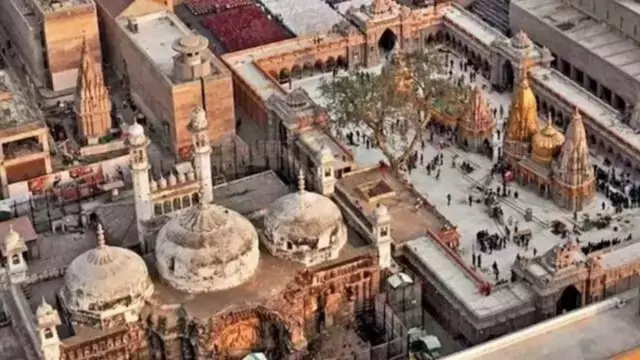839-Page ASI Report Reveals Hindu Temple Remains Beneath Existing Structure

Varanasi: In a monumental development, the Archaeological Survey of India (ASI) has released its highly anticipated 839-page report on the Gyanvapi Mosque complex in Varanasi. The report, made public today, presents a compelling case for the existence of a massive Hindu temple predating the current structure.
Prominent archaeology scholar Vishnu Shankar Jain, who has been closely following the case, wasted no time in highlighting the report's key findings. "Hindu pillars discovered within the basement, along with numerous Hindu idols, Naag Devta markings, and Om and Swastika symbols, paint a clear picture," he declared. "The ASI has definitively concluded that a grand Hindu temple stood on this very site before the construction of the existing structure."
This revelation is bound to send shockwaves through both the Hindu and Muslim communities, reigniting the long-standing dispute over the ownership of the complex. The Gyanvapi Mosque, situated in the heart of Varanasi, has been a point of contention for centuries, with Hindus claiming it was built upon the ruins of an ancient temple dedicated to Lord Shiva, the Kashi Vishwanath.
The ASI report, commissioned by the Varanasi court last year, was tasked with conducting a detailed survey of the mosque complex to determine the presence of any underlying Hindu structures. The extensive document, reportedly spanning over 800 pages, details the findings of the survey, including architectural elements, archaeological artifacts, and historical records.
Jain's statement suggests the report's findings heavily favor the Hindu claim, potentially setting the stage for a legal battle over the ownership of the complex. While the full details of the report are yet to be fully digested, the discovery of Hindu temple remnants within the mosque could significantly strengthen the Hindu petitioners' case.
It is important to remember that the legal process is far from over. The Varanasi court will now have to carefully analyze the ASI report and consider its implications for the ongoing dispute. This development is sure to spark heated debates and legal maneuvers in the coming months, keeping the Gyanvapi issue at the forefront of Indian discourse.
As the dust settles on this bombshell revelation, one thing is certain: the Gyanvapi dispute has entered a new and potentially decisive chapter. The ASI report's findings hold the potential to reshape the narrative surrounding this contentious site, with far-reaching consequences for both religious communities and the socio-political landscape of India.
